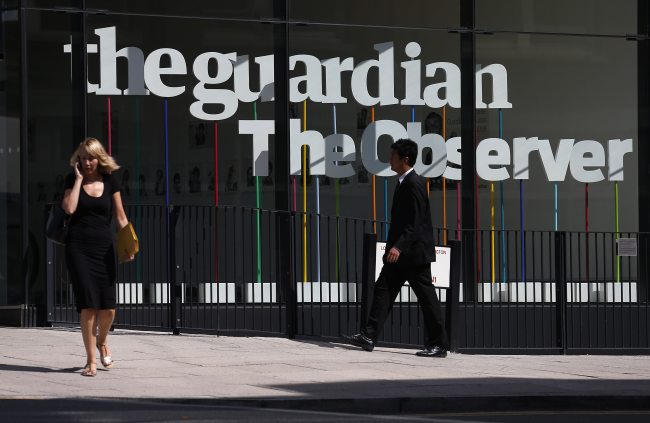WASHINGTON (Reuters) -- The surveillance court that oversees the U.S. government's massive collection of telephone data gave its fullest defense to date on Tuesday of why it considers the program lawful, despite the uproar after its existence was made public in June.
 |
Pedestrians walk past the entrance of the Guardian newspaper building in London. (Reuters-Yonhap News) |
In an opinion dated August 29 and released on Tuesday, Judge Claire Eagan of the U.S. Foreign Intelligence Surveillance Court wrote that the program did not violate the basic privacy rights of Americans and was authorized under the 2001 law known as the Patriot Act.
"The court concludes that there are facts showing reasonable grounds to believe that the records sought are relevant to authorized investigations," wrote the judge, one of 11 who serve on the surveillance court.
Britain's Guardian newspaper disclosed the telephone database's existence in June. It was the first of a series of disclosures from documents provided by former National Security Agency contractor Edward Snowden.
The program warehouses daily telephone "metadata" such as numbers called and the length and time of calls going back seven years. It does not include the content of calls or the names of callers, U.S. officials have said.
U.S. officials have said the database is valuable in preventing attacks by al Qaeda and other militant groups, and that access to the database is limited to trained personnel who are investigating international terrorist organizations.
The Foreign Intelligence Surveillance Court reviews the program periodically, but its opinions generally are classified and are rarely known to the public.
Eagan's opinion is notable for its sweeping grant of authority to the government, perhaps because lawyers from the U.S. Justice Department are the only ones who argue before the secretive court, said Alex Abdo, a staff attorney at the American Civil Liberties Union.
"When the court has in front of it only the government's arguments, it's not surprising that the opinion reads like a brief written by the government," Abdo said.
Eagan alluded to the attention Snowden's disclosures had received, writing: "This court is mindful that this matter comes before it at a time when unprecedented disclosures have been made about this and other highly sensitive programs designed to obtain foreign intelligence information and carry out counter-terrorism investigations."
The court may disclose more. On Friday, at the request of the ACLU, the court ordered a declassification review of certain other opinions related to the Patriot Act's Section 215, which authorizes the FBI to seize, with court approval, business records that are relevant to terrorism investigations.








